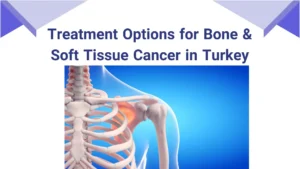New Methods for Kidney Transplant: Innovations Enhancing Outcomes for International Patients
Kidney transplantation remains the most effective treatment for patients with end-stage renal disease, offering a better quality of life and improved survival compared to dialysis. Yet, with global demand rising, new methods for kidney transplant have emerged, aiming to improve success rates, reduce complications, and expand donor availability. These innovations are especially vital for international patients seeking reliable, advanced care abroad.
This article explores cutting-edge kidney transplant techniques, updated immunosuppressive therapies, novel organ preservation methods, and special considerations for patients with conditions like pelvic organ prolapse. It also explains how wmedtour.com supports patients worldwide by connecting them to leading hospitals offering these advanced treatments.
Understanding New Methods for Kidney Transplant
The traditional approach to kidney transplantation has been refined over decades, but several challenges persist, including donor shortages, organ rejection, and surgery-related risks. Modern medical science has introduced new methods designed to address these issues effectively.
Minimally Invasive and Robotic-Assisted Surgery
Open surgery has long been the standard for kidney transplants, involving a large incision and significant recovery time. Recently, minimally invasive techniques such as robotic-assisted kidney transplantation (RAKT) have revolutionized surgical practice.
Robotic-assisted procedures enable surgeons to operate through small incisions using robotic arms with enhanced precision and flexibility. Studies from institutions like the Cleveland Clinic show that RAKT reduces blood loss, minimizes post-operative pain, and shortens hospital stays compared to traditional surgery. Furthermore, laparoscopic donor nephrectomy has improved donor recovery times, encouraging more living donations—a critical advantage for international patients facing donor scarcity.
Innovations in Immunosuppressive Therapy
Post-transplant care heavily relies on immunosuppressive drugs to prevent rejection. New medications and tailored regimens have enhanced patient outcomes:
- Belatacept offers an alternative to calcineurin inhibitors, with less nephrotoxicity and improved long-term graft survival (Johns Hopkins Medicine).
- Personalized immunosuppression utilizes immune monitoring to optimize drug dosages, reducing infections and drug-related side effects (Mount Sinai Health System).
- Experimental approaches such as immune tolerance induction aim to retrain the immune system to accept the transplanted kidney, potentially reducing or eliminating the need for lifelong immunosuppression (Charité Berlin).
Organ Preservation and Donor Pool Expansion
The shortage of suitable donor kidneys remains a global challenge. Innovative organ preservation techniques and expanded donor criteria are helping bridge the gap:
- Normothermic machine perfusion (NMP) maintains kidneys at body temperature during transport, enabling better assessment and repair of organs before transplantation (Cleveland Clinic).
- The use of expanded criteria donors (ECD), including older or medically complex donors, is safer thanks to advanced screening and preservation methods (Mayo Clinic).
- Experimental xenotransplantation, involving genetically engineered pig kidneys, holds promise for future organ availability but remains under clinical investigation (NIH Research).
Addressing Pelvic Organ Prolapse in Kidney Transplant Patients
Pelvic organ prolapse (POP) can complicate kidney transplant outcomes by affecting urinary function and pelvic floor support. Careful preoperative assessment and multidisciplinary management are essential to optimize results for these patients.
Integrating urogynecologic evaluation before transplant surgery helps tailor interventions, minimizing post-operative urinary complications. Rehabilitation and follow-up care further improve quality of life. Wmedtour.com specializes in coordinating care for such complex cases by partnering with hospitals experienced in treating both POP and renal diseases.
Comparison Table: Kidney Transplant Methods at a Glance
| Method | Key Benefits | Limitations | Ideal Candidate |
|---|---|---|---|
| Robotic-Assisted Transplant | Less invasive, faster recovery, reduced pain | Requires specialized expertise | Patients valuing minimal scarring |
| Laparoscopic Donor Nephrectomy | Quicker donor recovery, less discomfort | Surgeon experience-dependent | Living kidney donors |
| Belatacept Immunosuppression | Less nephrotoxicity, improved graft survival | Requires close monitoring | Patients intolerant to calcineurin inhibitors |
| Normothermic Machine Perfusion | Enhanced organ preservation and viability | Equipment-intensive | Marginal or expanded criteria donor kidneys |
| Xenotransplantation (experimental) | Potential to increase organ supply dramatically | Still experimental, ethical questions | Future transplant recipients in trials |
Planning Your Kidney Transplant Abroad with wmedtour.com
Embarking on a kidney transplant journey overseas involves numerous considerations. Wmedtour.com supports international patients with a streamlined, patient-centered process:
- Hospital Selection: Access verified hospitals offering advanced transplant methods.
- Expert Consultations: Receive personalized second opinions from top specialists.
- Travel Coordination: Comprehensive assistance with visas, flights, accommodation, and local transportation.
- Cost Transparency: Clear pricing for procedures, medications, and follow-up care.
- Post-Transplant Care: Connect with local and international specialists for ongoing management.
Our platform ensures safe, efficient, and affordable kidney transplant experiences worldwide.
Why Choose wmedtour.com?
We are dedicated to helping patients find the best pelvic organ prolapse treatments and kidney transplant options worldwide. Our services include:
- Expert consultations with leading surgeons
- Reliable second opinion services
- Full treatment coordination
- Comprehensive travel and accommodation support
With partnerships spanning multiple countries, wmedtour.com simplifies complex medical journeys, prioritizing patient safety and satisfaction.
Ready to Explore New Methods for Kidney Transplant?
At wmedtour.com, we help patients access the best pelvic organ prolapse and kidney transplant treatments worldwide through expert consultation, second opinion services, treatment coordination, and full travel and accommodation support for medical tourists. Contact us today to start your journey towards a healthier future.
<scr



